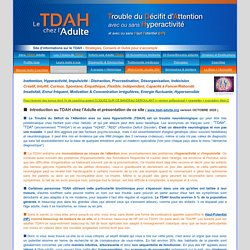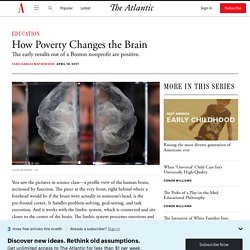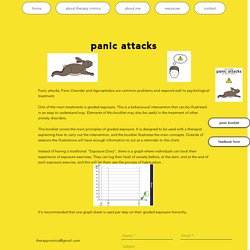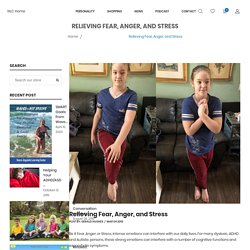

L'idée libertaire ? TDAH Adulte TDA HP TDAHP - Hypersensible - Haut-Potentiel - Déficit d'Attention - Probleme concentration Procrastination Cyclothymie Impulsivité Ritaline Coaching. Inattention, Hyperactivité, Impulsivité - Distraction, Procrastination, Désorganisation, Indécision Créatif, Intuitif, Curieux, Spontané, Empathique, Flexible, Indépendant, Capacité à Foncer/RebondirInsatisfait, Ennui fréquent, Motivation & Concentration irrégulières, Energie fluctuante, Hypersensible ■ Le Trouble du Déficit de l'Attention avec ou sans Hyperactivité (TDA/H) est un trouble neurobiologique qui peut être très problématique chez l'enfant puis chez l'adulte, et qui par ailleurs peut être aussi bénéfique.

Les acronymes en français sont : "TDAH", "TDA" (anciennement "THADA") et en anglais "ADHD", "ADD" (Attention Deficit Disorder). C'est un désordre neurologique et non pas une maladie. Il peut être aggravé par des facteurs psycho-sociaux, mais il est essentiellement d'origine génétique (donc souvent héréditaire) et neurobiologique. . ■ Le TDAH entraîne une inconsistance au niveau de l'attention avec éventuellement des problèmes d'hyperactivité et d'impulsivité. A. Psychologie Positive. Everything Is Awful and I’m Not Okay: questions to...
Boston's EMPath Program Uses Science to Fight Family Poverty - The Atlantic. “The Family Carpool Lane Tool,” meanwhile, helps parents and their children align individual and family goals.

Working together, they can avoid traffic and cruise through the fast lane. Intergen mentors visit participating families and facilitate conversations that prompt both adults and children to make future-oriented and contextualized decisions, ones that take into account other important domains. Their goal is to help the adults in the families become mentors for themselves and their children. Eventually, they hope, they make their own contributions obsolete. Stephanie Brueck, the senior coordinator of the Intergenerational Mobility Project, recently sat down with a single mom, Ginnelle V., who asked her last name not be used to preserve her family’s privacy, and Ginnelle’s five children, four girls and one boy who range in age from kindergarten through college-aged. Over the last year, Brueck has helped the family think through both personal and family goal-setting.
Mindfulness. Refuge In Grief - emotionally intelligent grief support. Psyintegrative. Therapy resources. Comment gérer une crise psychotique ? - Dandelion - Medium. Je me suis rendu compte que c’était un sujet assez tabou, et que même moi j’en parlais peu.

J’ai pris l’habitude forcer pour ne surtout pas les faire en public. Ce qui fait que je fais généralement des crises au carré… et les rares fois où j’en ai faites en public, les réactions sont allées de “pas terribles” à “extrêmement dangereuses”. Tout ça menant à un incroyable cercle vicieux : on en parle pas, on tire sur soi pour les faire en privé (et au carré), donc les gens savent encore moins comment gérer, donc on en parle encore moins, etc… Après toutes ces années, j’ai enfin réussi à faire mon plan de crise et à le partager à mes ami·es.
Quoi faire, quoi ne pas faire… à ma grande surprise, tout s’est super bien passé. Ne me touchez pas Un point essentiel… c’est même le seul que vous donneront les psys. 2. Une fois ceci bien compris, bien intégrer, le but du jeu va consister à créer un contact avec la personne en crise, c’est ce qui va lui permettre de revenir. 3. 4. 5. 6. 7. 8. 9. Therapy resources. Panic attacks Panic attacks, Panic Disorder and Agoraphobia are common problems and respond well to psychological treatment.

One of the main treatments is graded exposure. This is a behavioural intervention that can be illustrated in an easy to understand way. Elements of this booklet may also be useful in the treatment of other anxiety disorders. This booklet covers the main principles of graded exposure. Instead of having a traditional "Exposure Diary", there is a graph where individuals can track their experience of exposure exercises. It's recommended that one graph sheet is used per step on their graded exposure hierarchy. Relieving Fear, Anger, and Stress – NLC Home. Be it Fear, Anger, or Stress, intense emotions can interfere with our daily lives.

For many dyslexic, ADHD and Autistic persons, these strong emotions can interfere with a number of cognitive functions and exacerbate symptoms. For these reasons and more, strategies for reducing fear, anger, and stress are part of almost every NLC program. While it is always recommended that emotions be addressed at the source--the reason for the emotion—sometimes, it is desirable to simply address the emotion in the moment. For example, a person might be feeling anger or rage. In lieu of a long-term therapy to address the source of the issue, that person cold run--just run--and keep running and running until he is completely exhausted, absolutely spent. Where's the anger? Now, let's take another approach. The first exercise is a simple bilateral hemispheric integration. While walking, we're going to touch the PALM of our hand to our OPPOSITE knee with each step.